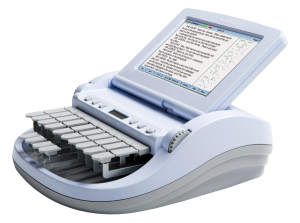 When taking a deposition, there are many rules of etiquette and good manners that are unwritten. Seasoned attorneys will know how to conduct a deposition using these best practices simply from experience. If you are relatively new to depositions, we have compiled a few points of etiquette that will help your court reporter provide an accurate transcript and do a great job for you. Your court reporter will be grateful to you if you follow some of these simple rules.
When taking a deposition, there are many rules of etiquette and good manners that are unwritten. Seasoned attorneys will know how to conduct a deposition using these best practices simply from experience. If you are relatively new to depositions, we have compiled a few points of etiquette that will help your court reporter provide an accurate transcript and do a great job for you. Your court reporter will be grateful to you if you follow some of these simple rules.
1. Seat the court reporter close to the witness.
Even if a room is small, it is sometimes difficult for the court reporter to hear a soft-spoken witness. Place your witness next to the court reporter. This will ensure the court reporter has the best opportunity to hear the witness’s answers. This is very important as your court reporter is taking down every word that is spoken, transcribing it, and creating a transcript for your use.
2. Verbally state when you are going on and off the record.
Always verbally state when you are going on and off the record. Often your court reporter can tell when you are intending to be on the record simply by your tone of voice. But there are circumstances when it is difficult to tell. By verbally stating you are going on or off the record, you can ensure that your court reporter is ready and is taking down your spoken words. Making a clear and accurate record is important to you and your client.
3. Speak at a moderate pace.
While your court reporter has the skill to write at a fast pace, it can be exhausting when it continues for long periods of time. A moderate pace will allow your court reporter to write at a comfortable rate of speed. If you are speaking too quickly, your court reporter will ask you to slow down so that every word that is being spoken is being recorded. Try your best to meet this request for a slower speed when asked.
4. Stay silent while the court reporter marks exhibits.
It is common that the questioning attorney will ask the court reporter to mark an exhibit, then resume asking questions of the witness while the exhibit is being marked. However, the court reporter cannot take down what you are saying and mark exhibits at the same time. Stay silent while the court reporter is marking exhibits, and resume questioning only after the exhibits have been marked and your court reporter can return his or her hands to the stenograph machine keyboard.
5. Always communicate verbally.
Some depositions are full of many objections. It is common that, when verbalizing the same objection repeatedly, an attorney may slip into using an informal wave of the hand to indicate another objection for the record. While everyone in the room may know that the wave of the hand is meant to convey an objection, the court reporter only records what is verbalized. So you run the risk that your wave of the hand and your objection may go unrecorded. Protect your objections by verbalizing each one for the court reporter.
6. Provide spellings of case-specific terminology.
Your case may be filled with terminology that is specific to a certain industry. Your court reporter, while experienced with the terminology of many industries, may not know every term or phrase you will be using in your deposition. The same is true for names of people mentioned in testimony, and street and city names. It is a good idea to provide a list of spellings of names, phrases or terms to the court reporter as they come up in testimony. The spelling can be provided on the record, or written down on a list for the court reporter to take and use when transcribing the testimony.
7. Don’t ask the court reporter for their opinion about your case.
A court reporter attentively listens to the testimony as it is recorded. You may be tempted to ask what he or she thought of the testimony as it was being relayed. After all, they are a neutral party, hearing testimony as the jury will hear it later if your case goes to court. However, when you ask your court reporter for their opinion of the testimony, you are putting them in a difficult position. As a neutral party, if they are to impart their opinion in your case, this may compromise their neutrality to both parties. Refrain from asking your court reporter for his or her opinion of the testimony or any aspect of your case.
8. Read slowly when reading out loud from a document.
Reporters are trained to be able to take down the spoken word at over 200 words per minute. However, most people will read at a more rapid rate of speed than they speak during conversation. If you are reading from a document, be sure to keep the speed of your reading at the same speed as you normally speak. Your court reporter will greatly appreciate your efforts.
9. Tell your court reporter if you will need a rush transcript.
Rush transcripts are nothing new to a court reporter. They are a common part of the job, and your court reporter will be able to deliver. By giving your court reporter notice that you will be ordering a rush transcript, this allows the court reporter time to make arrangements in order to put your transcript first on his or her list of priorities. Whether you call the day or week before, or whether you tell the court reporter at the beginning of the deposition, give notice as early as possible to allow your court reporter to make arrangements to work on your rush transcript.
10. Take regular breaks.
Sitting in one place for extended periods of time can be just as physically exhausting as constant movement. During long proceedings, you and your court reporter need a little time to stretch your legs and get a mental break before continuing with the proceeding. Everyone will benefit.
By following these simple etiquette rules, you will be using good manners and showing respect to your court reporter and to all parties in the room. Good manners can help create a comfortable work environment in a deposition and allow your court reporter to do their very best work for you.
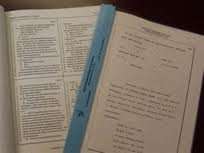

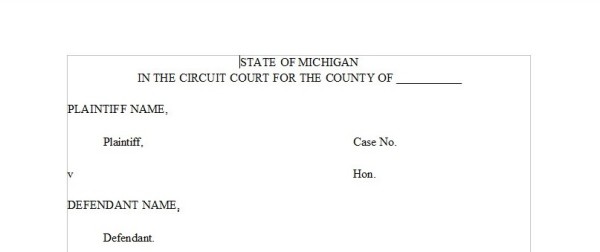

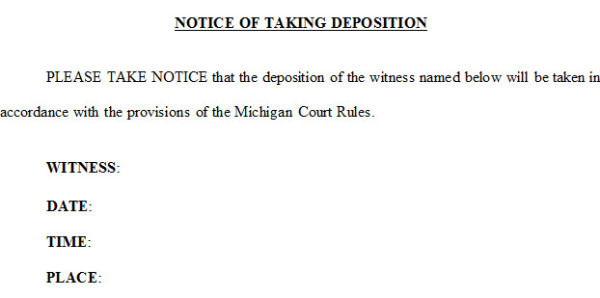

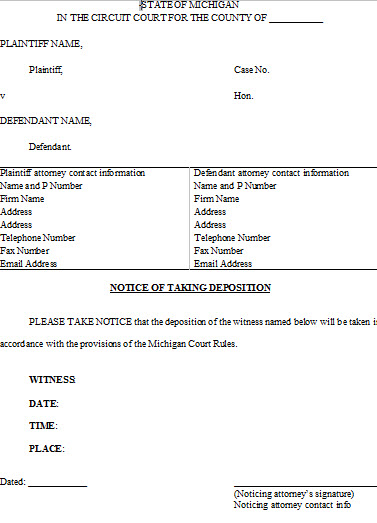
 Does your office recycle? If not, you might want to think about starting a program. Recycling is not only good for the environment but is also good for business in a variety of ways.
Does your office recycle? If not, you might want to think about starting a program. Recycling is not only good for the environment but is also good for business in a variety of ways.